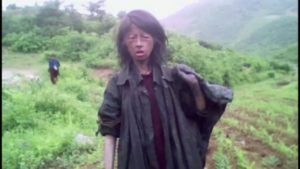Special to WorldTribune.com
UNITED NATIONS — A powerful UN committee has scathingly criticized the systematic human rights abuses in communist North Korea. In a damning ten-page resolution, the Third Committee has offered a detailed and precise indictment of a deteriorating human rights situation in the quaintly titled Democratic People’s Republic of Korea, (DPRK) aka North Korea.
The annual resolution was sponsored by the USA, Canada, Japan, South Korea and members of the European Union. The resolution decried reports of “Torture and other cruel, inhuman or degrading treatment or punishment, including inhuman conditions of detention; rape; public executions; extrajudicial and arbitrary detention.”

Significantly it added, “The existence of an extensive system of political prison camps, where a vast number of persons are deprived of their liberty and subjected to deplorable conditions, including forced labour, and where alarming violations of human rights are perpetrated.”
Regarding severe restrictions on freedom of thought and belief, the resolution added, “All-pervasive and severe restrictions, offline and online, on the freedoms of thought, conscience, religion or belief, opinion and expression, peaceful assembly and association, the right to privacy and equal access to information.” It underscored the “unlawful and arbitrary surveillance, persecution, torture, imprisonment and, in some instances, summary executions of individuals exercising their freedom of opinion and expression.”
Some of the toughest scrutiny concerned the North Korean communist regime’s degrading treatment of women, “Violations of the human rights and fundamental freedoms of women, in particular the creation of internal conditions that force women to leave the country and make them extremely vulnerable to trafficking in persons for the purpose of prostitution, domestic servitude or forced marriage and the subjection of women to gender-based discrimination.”
Importantly, the resolution cites evidence of the DPRK regime’s Orwellian system of classifying the population into certain reliable and politically undesirable categories. The report adds, “Discrimination based on the songbun system, which classifies people on the basis of State-assigned social class and birth, and also includes consideration of political opinions and religion.” Through such classifications citizens are assigned to a rigid and near unchangeable place in the socialist society which they have little chance for change.
Given that “the commission’s finding that the body of testimony gathered and the information received provide reasonable grounds to believe that crimes against humanity have been committed in the Democratic People’s Republic of Korea,” there may be future referral of key North Korean political figures to prosecution by the International Criminal Court, (ICC).
Such a legal course of action is currently being pursued by the UN Security Council and the resolution underscores the need “to continue to discuss the situation in the Democratic People’s Republic of Korea, including the country’s human rights record.”
Specifically, the resolution strongly urges North Korea “immediately put an end to the systematic, widespread and grave violations of human rights…and to immediately close the political prison camps and to release all political prisoners unconditionally and without any delay.”
Equally the resolution demands that the Pyongyang rulers, “extend their full cooperation to the Special Rapporteur, including by granting him full, free and unimpeded access to the Democratic People’s Republic of Korea.” As would be imagined the communist authorities have blocked access into North Korea by human rights observers and have systematically sealed off the reclusive country from its prosperous cousins in South Korea.
So shall yet another harsh condemnation of the DPRK regime really change very much?
No and yes.
No because Kim Jong-Un and his followers know exactly how to use terror and intimidation against their citizens.
Yes, because a growing awareness in the international community realizes the depth and magnitude of this human rights “black hole” in North Korea.
Accountability remains crucial. When the change finally comes, and it will, nobody wants to be called either complicit or condoning of this glaring humanitarian outrage.
John J. Metzler is a United Nations correspondent covering diplomatic and defense issues. He is the author of Divided Dynamism the Diplomacy of Separated Nations: Germany, Korea, China (2014). [See pre-2011 Archives]

